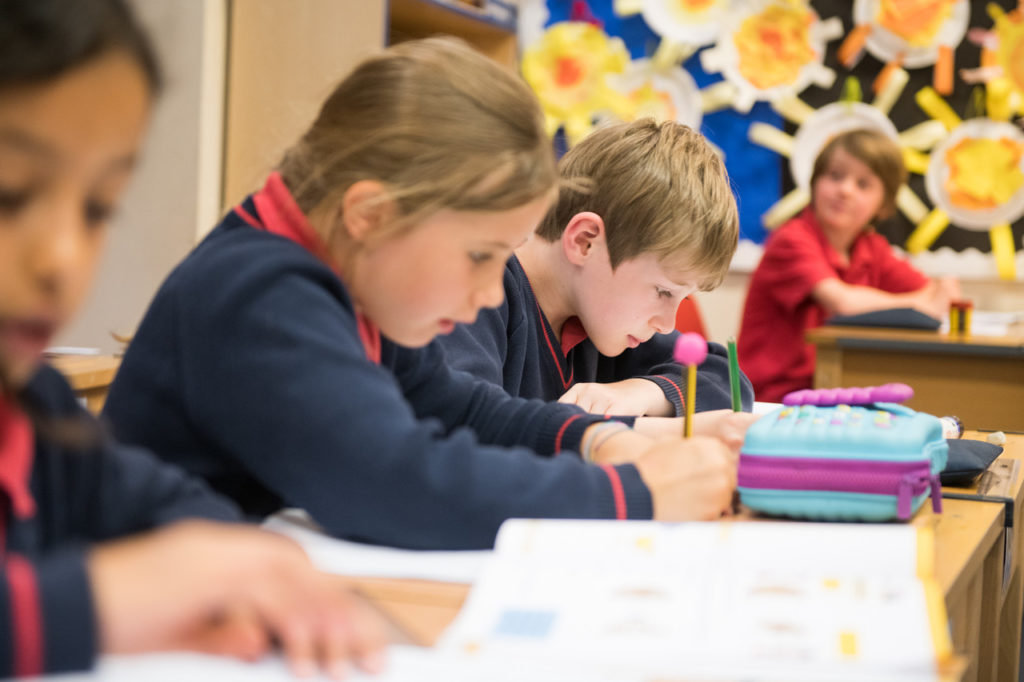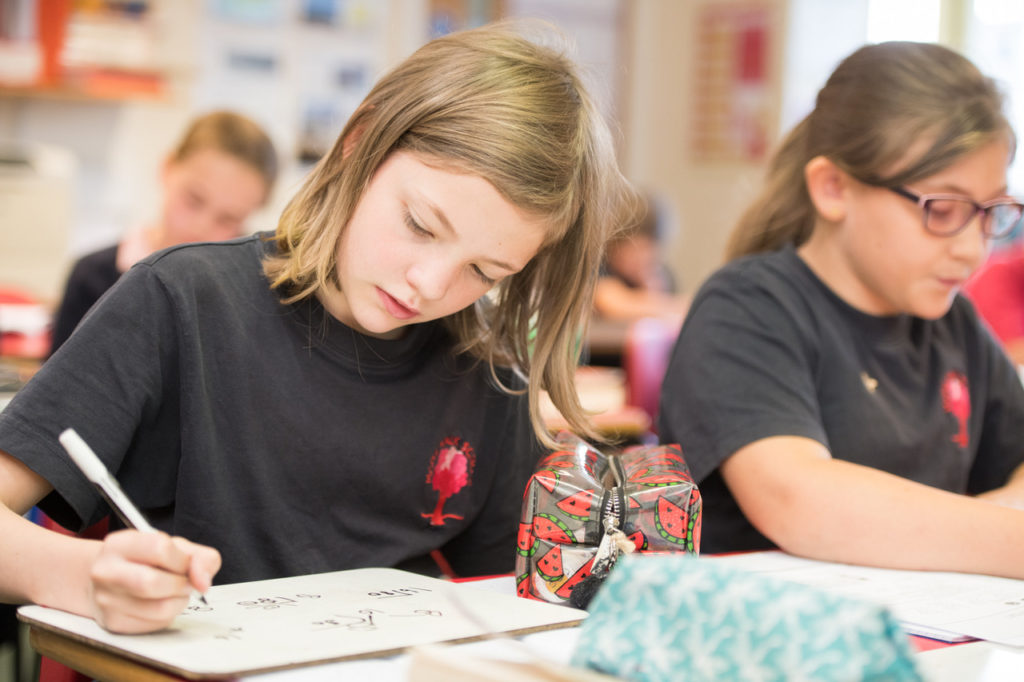By Sarah Gillam, Head Teacher Maple Walk School

All parents, regardless of which type of school their child attends, will have heard of the dreaded SATs (Standard Attainment Tests). Like it or not, state schools are obliged to take the government tests at regular intervals in a child’s education pathway but independent schools are free from this requirement and so the question is: how can you be sure that your child is making adequate progress and, more importantly, that they will be equipped for the next phase of their education?. Whilst assessments may get bad press and appear to put children under undue pressure, there are good reasons for schools to put a system in place.
The aim of assessment is four-fold:
- To provide information for future planning
- To celebrate the achievements of a pupil.
- To inform parents of their child’s attainment and potential.
- To involve pupils in evaluating their own efforts.

An excellent prep school will have a rigorous and robust tracking process in place to which teachers are accountable. For any process to be really effective, pupils should be assessed soon after entering the school, so that there is a baseline reading to start from. Reception teachers typically use an online tracking system, which includes pictures, videos and comments about a child. Once the data is input, it is easy to see if the child is at the expected level (benchmarked by the national EYFS standards) and what are the next steps the child should be taking. Even at this early stage, a child might require support to reach the expected goals and an excellent school will ensure that there are opportunities for intervention sessions. Parents should not be alarmed if assessments indicate early on that extra help is needed, as often children need a little support before making big leaps. There can be an enormous range of abilities, with gaps sometimes closing the further a child moves up the school. This is where assessment really comes into its own – it should show how an individual child is making progress, rather than merely measuring the child against their peers.
Intervention sessions are usually run by teaching assistants under the guidance of the class teacher. Typically, small groups are taken out of the class for short sessions in: reading; phonics; simple number bonds; handwriting; comprehension skills. Sessions are very structured to support the learning of the pupils.
Tracking of pupils is important as it can not only identify those who are underachieving and monitor gender bias but also also highlight those children who demonstrate an aptitude for a subject and need to develop “mastery”. These children might be requested to attend short early morning problem solving sessions or additional reading groups.

As a child progresses through the School, pupils will be tracked for their reading age, their spelling age; their reading comprehension age; their arithmetic and their problem solving skills. As a child becomes older, tracking will continue with science or their writing skills, their verbal and non-verbal reasoning skills. This happens via the actual teacher tracking sheets, the cohort tracking sheets and data analysis. One would expect a gradual increase in the standardised scores and a clear explanation of the systems used by the School. With all results, an excellent school would follow the formula: assess; plan; do and review – involving parents at every stage of the process.
Assessment within academic subjects is aided by the use of standardised scores where the child’s age is taken into account and the norm is taken to be 100. Scores for tests below or above that “standard” score can be explained to a parent at regular formal or informal meetings, alongside clear action plans for the child.
Assessment of other subjects are more subjective and is based on the teacher’s view; for example music or language aptitude; artistic or drama aptitude. An excellent school will provide time to enhance these skills with lunchtime or after school clubs.
Whilst the maintained schools’ SATs grab the headlines, independent schools are able to monitor in a similarly rigorous fashion, without the song and dance. Often pupils will not even be aware they are being tracked and/or the assessments are done little and often, so that they become an accepted part of the school routine.
At Maple Walk we see assessment as something to be celebrated – it enables us to better understand our pupils on a granular level. However, I do offer a word of caution – results are important, but pupil success is about far more than the sum total of a spreadsheet. And while our assessments can tell us many things, in particular if we as educators are doing our jobs right, what they cannot do is celebrate the many other talents our children bring to the table.
